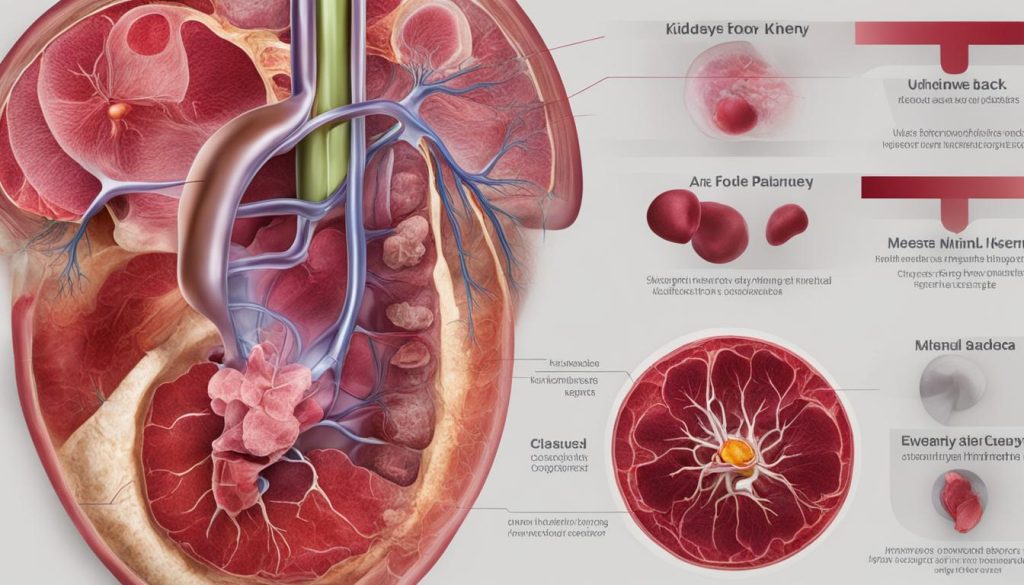Hey there! If you’re reading this, you’re probably looking for information about urinary tract infections (UTIs) and their symptoms. Well, you’ve come to the right place. UTIs can be uncomfortable and even painful, but recognizing the signs early on is crucial for getting the right treatment and preventing complications.
So, what exactly are the symptoms of a UTI? Well, they can vary depending on which part of the urinary system is affected. But some common signs to look out for include a strong urge to urinate, a burning sensation during urination, and frequent trips to the bathroom. You may also notice cloudy urine or experience pelvic pain if you’re a woman. Other possible symptoms include bloody urine, strong-smelling urine, and lower belly discomfort.
If you’re experiencing any of these symptoms, don’t panic! UTIs are relatively common, especially in women. The good news is that they can usually be easily treated with the right medical intervention. But it’s important not to ignore the signs and seek timely treatment to prevent the infection from spreading to the kidneys, which can lead to more serious complications.
What are the Signs of a Urinary Tract Infection
- Recognize early signs of a UTI, such as a strong urge to urinate and a burning sensation during urination.
- Additional symptoms may include cloudy or bloody urine, strong-smelling urine, and pelvic pain.
- Seek medical attention promptly to prevent the infection from spreading to the kidneys.
- UTIs are more common in women, but can affect anyone.
- Remember to drink plenty of water and practice good hygiene to reduce the risk of developing a UTI.
Common UTI Symptoms
Urinary tract infections (UTIs) can cause a range of symptoms, depending on the part of the urinary tract that is affected. It’s important to recognize these symptoms as early as possible to seek prompt medical attention. Here are some common UTI symptoms to watch out for:
- A strong and persistent urge to urinate
- A burning sensation or pain during urination
- Frequent urination, often with small amounts of urine
- Cloudy or bloody urine
- Strong-smelling urine
- Pelvic pain, especially in women
- Lower belly discomfort
Experiencing one or more of these symptoms may indicate a urinary tract infection. It’s essential not to ignore these signs and seek medical attention promptly. Early diagnosis and treatment can prevent the infection from spreading and causing further complications.
Understanding the Urinary System
The urinary system plays a vital role in removing waste and fluid from the body through urine. It consists of several key components, including the kidneys, ureters, bladder, and urethra.
The kidneys:
The kidneys are responsible for filtering waste products from the blood and producing urine. They are bean-shaped organs located in the upper abdominal area. The kidneys play a crucial role in maintaining the body’s fluid balance and electrolyte levels.
The ureters:
The ureters are narrow tubes that connect the kidneys to the bladder. They transport urine from the kidneys, allowing it to flow smoothly into the bladder for temporary storage.
The bladder:
The bladder is a hollow muscular organ that stores urine until it’s time to urinate. It expands as it fills with urine and contracts when the bladder muscles contract during urination, allowing the urine to be expelled through the urethra.
The urethra:
The urethra is a small tube that serves as the exit pathway for urine to leave the body. In males, the urethra also serves as the passage for semen during ejaculation.
Understanding the different components of the urinary system is essential for recognizing and understanding the symptoms associated with urinary tract infections (UTIs) and other urinary system-related conditions.
By gaining knowledge about how the urinary system functions and the role each component plays, individuals can better understand the signs and symptoms of UTIs and seek appropriate medical attention when necessary.
Risk Factors and Causes of UTIs
Certain risk factors can increase the likelihood of developing a urinary tract infection (UTI). In women, several factors contribute to the higher occurrence of UTIs. Female anatomy, such as having a shorter urethra, makes it easier for bacteria to reach the urinary tract. Sexual activity can introduce bacteria into the urethra and increase the risk of infection. Certain types of birth control, such as diaphragms, can also make women more susceptible to UTIs.
During menopause, hormonal changes can affect the urinary tract and increase the risk of UTIs. Other conditions, such as urinary tract abnormalities or urinary tract blockages, can also contribute to UTI development in women.
In men, risk factors for UTIs include urinary tract abnormalities, an enlarged prostate, and the use of catheters. Urinary tract abnormalities can create conditions that make it easier for bacteria to enter the urinary tract. An enlarged prostate can cause urinary retention and increase the risk of infection. The use of catheters, especially if not properly cleaned and maintained, can introduce bacteria into the urinary tract.
UTIs are usually caused by bacteria, and the most common culprit is Escherichia coli (E. coli) bacteria. E. coli naturally resides in the digestive system but can enter the urinary tract and cause an infection. Sexual activity and poor hygiene can also increase the risk of developing a UTI by introducing bacteria into the urethra.
Common Risk Factors for UTIs:
- Female anatomy (shorter urethra)
- Sexual activity
- Certain types of birth control
- Menopause
- Urinary tract abnormalities
- Urinary tract blockages
- Enlarged prostate
- Catheter use
Having an understanding of these risk factors enables individuals to take proactive steps in preventing UTIs and seek timely medical attention when necessary.
Complications and Risks of Untreated UTIs
If left untreated, UTIs can lead to complications and more serious health problems. It’s crucial to recognize the signs of a UTI and seek appropriate treatment to prevent these complications.
Kidney Infection Signs
One of the potential complications of an untreated UTI is a kidney infection. Also known as pyelonephritis, a kidney infection occurs when the bacteria from the initial UTI travel up to the kidneys. This can cause symptoms such as fever, chills, back or side pain, frequent urination, and cloudy or bloody urine. Seek medical attention if you experience these signs to prevent further complications.
UTIs in Women
Women are more prone to UTIs due to their shorter urethra, which makes it easier for bacteria to enter the urinary tract. If left untreated, UTIs in women can lead to recurrent infections, which can be uncomfortable and disrupt daily life. It’s important to address UTIs promptly to prevent them from becoming a recurrent issue.
UTIs in Men
Although UTIs are more common in women, men can also develop this infection. In men, an untreated UTI can cause complications such as a narrowed urethra or prostate infection. These conditions can lead to urinary problems and discomfort. It’s essential for men to seek medical attention for UTIs to prevent these complications.
UTIs in Children
UTIs can affect individuals of all ages, including children. In children, untreated UTIs can lead to kidney damage, which can have long-term consequences for their health. It’s important for parents to be vigilant and recognize the signs of a UTI in their children, such as frequent urination, bedwetting, and abdominal pain, to ensure timely treatment.
Signs of UTIs in the Elderly
Older adults are at a higher risk for UTIs due to factors such as weakened immune systems, decreased bladder control, and the presence of underlying medical conditions. If left untreated, UTIs in the elderly can lead to serious complications such as sepsis, a life-threatening condition. It’s crucial to be aware of the signs of a UTI in the elderly, including confusion, fatigue, and changes in urine color or odor, and seek medical attention promptly.

Preventing UTIs
Preventing urinary tract infections (UTIs) is crucial in maintaining optimal urinary health. By following a few simple steps, you can significantly reduce the risk of developing a UTI.
- Stay hydrated: Drinking plenty of fluids, especially water, helps flush bacteria from the urinary tract, preventing the colonization and growth of harmful bacteria.
- Practice good hygiene: Wiping from front to back after using the bathroom helps prevent the transfer of bacteria from the anal area to the urethra, reducing the risk of UTIs.
- Empty your bladder: Urinating soon after sexual activity can help flush out any bacteria that may have entered the urethra during intercourse. This simple step can significantly decrease the risk of developing a UTI.
- Avoid potentially irritating products: Certain feminine products, such as douches, powders, and scented sprays, can disrupt the natural balance of bacteria in the urinary tract, making it more susceptible to infection. Stick to mild, unscented products instead.
- Consider changes in birth control: Some forms of birth control, such as diaphragms and spermicides, can increase the risk of UTIs. If you’re prone to recurrent UTIs, speak to your healthcare provider about alternative contraception methods.
While cranberry juice has long been touted as a natural remedy for UTI prevention, its effectiveness is still debated among experts. Research suggests that cranberry juice may help prevent UTIs by preventing bacteria from sticking to the walls of the urinary tract. However, more studies are needed to confirm these findings.
Remember, it’s always important to discuss preventive measures with your healthcare provider. They can offer personalized advice and recommendations based on your individual health profile.
Seeking Medical Attention for UTIs
If you suspect that you have a UTI, it’s crucial to seek medical attention for proper diagnosis and treatment. A healthcare provider can perform a urine test to confirm the presence of a UTI and determine the appropriate course of action.
When diagnosing a UTI, the healthcare provider may ask about your symptoms and medical history, perform a physical examination, and analyze a urine sample. UTIs are typically treated with antibiotics to clear the infection and alleviate symptoms.
To ensure the infection is fully eradicated, it’s important to complete the full course of antibiotics as prescribed by the healthcare provider, even if you start feeling better before finishing the medication. Failure to complete the course may lead to recurring infection or antibiotic resistance.
Seeking medical attention promptly is essential in UTI treatment. It can help alleviate the discomfort and pain associated with the infection, prevent the infection from spreading to the kidneys or causing complications, and improve overall recovery. Remember to follow the healthcare provider’s instructions and ask any questions or express concerns about the treatment.

Don’t wait to address your UTI. Schedule an appointment with a healthcare professional and get the necessary treatment to promote a speedy recovery and prevent any further complications. UTIs are common, but with timely diagnosis and appropriate treatment, they can be effectively managed.
Conclusion
Urinary tract infections (UTIs) are common infections that can affect the urinary system and cause uncomfortable symptoms such as frequent urination, burning sensation during urination, and pelvic pain. It is crucial to recognize the signs of a UTI and seek prompt medical attention to prevent complications.
Prevention plays a key role in reducing the risk of developing a UTI. By practicing good hygiene, such as wiping from front to back after using the bathroom, and staying hydrated by drinking plenty of fluids, particularly water, you can help prevent the occurrence of UTIs. It is also important to consider changes in birth control methods and empty the bladder soon after sexual activity to reduce the risk.
If you suspect that you have a UTI, it is essential to consult a healthcare provider for proper diagnosis and treatment. A healthcare provider can perform a urine test to confirm the presence of a UTI and prescribe antibiotics to clear the infection. Completing the full course of antibiotics as prescribed is crucial to ensure the infection is fully eradicated.
By being aware of the signs, taking preventive measures, and seeking timely medical attention, you can effectively manage and prevent UTIs, promoting a healthy urinary system and overall well-being.
FAQ
What are the signs of a urinary tract infection (UTI)?
The signs of a UTI can include a strong urge to urinate, a burning feeling during urination, frequent urination, cloudy urine, and pelvic pain in women. Other signs can include bloody urine, strong-smelling urine, and lower belly discomfort.
How does the urinary system work?
The urinary system includes the kidneys, which filter waste from the blood and produce urine, the ureters, which transport urine from the kidneys to the bladder, the bladder, which stores urine, and the urethra, which eliminates urine from the body.
What are the common symptoms of a UTI?
Common UTI symptoms include a strong and persistent urge to urinate, a burning sensation during urination, frequent urination with small amounts of urine, cloudy or bloody urine, strong-smelling urine, pelvic pain (especially in women), and lower belly discomfort.
What are the risk factors and causes of UTIs?
In women, risk factors can include female anatomy (having a shorter urethra), sexual activity, certain types of birth control, menopause, urinary tract problems, and urinary tract blockages. In men, risk factors can include urinary tract abnormalities, an enlarged prostate, and catheter use. UTIs are usually caused by bacteria, with E. coli being the most common culprit. Sexual activity and poor hygiene can also increase the risk of developing a UTI.
What are the complications and risks of untreated UTIs?
Untreated UTIs can lead to repeated infections, permanent kidney damage, low birth weight or premature birth in pregnant women, narrowed urethra in men, and sepsis (a life-threatening condition).
How can UTIs be prevented?
Steps to reduce the risk of UTIs include drinking plenty of fluids, practicing good hygiene, emptying the bladder soon after sexual activity, avoiding potentially irritating feminine products, considering changes in birth control methods, and discussing preventive measures with a healthcare provider.
What should I do if I suspect a UTI?
If you suspect a UTI, it’s important to seek medical attention for proper diagnosis and treatment. A healthcare provider can perform a urine test to confirm the presence of a UTI. Treatment for UTIs usually involves antibiotics to clear the infection.
What is the importance of seeking medical attention for UTIs?
Prompt treatment can help alleviate symptoms and prevent complications associated with UTIs.




